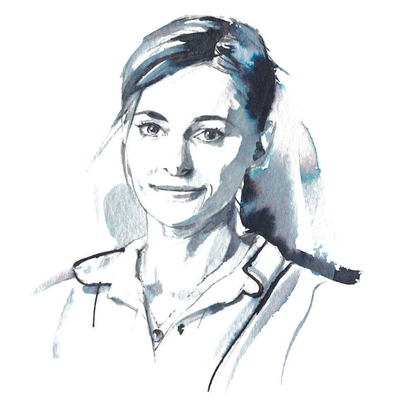Why I have children
It is said that there is no arguing about taste, because taste is a personal and emotional issue that is not amenable to factual arguments. Nevertheless, the whole world gets lost in discussions about it. It is similar with the question of children. Depending on the variables of personal history, environment, partner and coincidence, the arguments in favour or against are countless and usually whole belief systems are grouped around them. But ultimately, children are an axiom, a proposition.
So why do I have children? I don't really know that either. The answer must be a search for clues. As a radical teenager, I thought the world was far too evil to inflict on children. As a student, the world surprised me in a positive way, but now I asked myself whether I was good enough to put myself through a child. But the question remained abstract; I found children and babies to be intellectually uninteresting and nervously exhausting.
And then there was this art project called @home in Basel in the nineties. It was a large, open studio on a disused site where a handful of artists declared living to be an art form, a project between social sculpture and play, between factory life and communal experiment. I was in my mid-twenties at the time, also lived on the site and was a frequent guest. @home was the hub of a creative network, people of all ages and backgrounds came and went, artists, curators, theorists, marginalised people, there was food and parties and happenings, sometimes with, sometimes without children.
I don't remember when, how or where it happened. But after experiencing numerous parties without and happenings with children, one day I realised how children change a social structure. It wasn't about a specific child, a specific parent or a specific experience. The presence of children had a very general effect, like the keel of a boat that keeps it stable. Or a concave lens that focusses past, present and future. Present, because you have to take care of their needs. Past, because you have to draw on your own experiences and reflect on them. Future, because they will outlive us.
Giving birth to a child means being born as a mother yourself, transcending your own personality in a previously unknown direction.
It was an abstract, somewhat diffuse realisation. It may seem trivial to you, but in my case, this general feeling, freed from the individual mess, prepared the ground on which my husband's later desire to become a father at 25 at the latest bore fruit.
Since then, I have listened to numerous debates on the issue of children, heard friends complain that they would like to have children, others that society discriminates against childless women, still others criticise how much a family changes women and others that there is no ideal time to have children, that having to make a conscious decision for or against it is cruel, an impossibility. And everyone is right in some way.
But it is also true that childless people will never be able to understand the magnitude of this experience. It is «bigger than life». For women, I theorise, it is even transcendent, because giving birth to a child means being born as a mother yourself, transcending your own personality in a previously unknown direction.
You can also put it more soberly, like Bill Murray in the film Lost in Translation. «When your first child is born, it's the scariest day of your life. Your life is over and it will never be the same again. But then they learn to walk and they learn to talk and you want to be with them. And they turn out to be the most wonderful people you will ever meet in your life.» This experience, I believe, is worth all the sacrifices.
© Tages-Anzeiger/Mamablog





